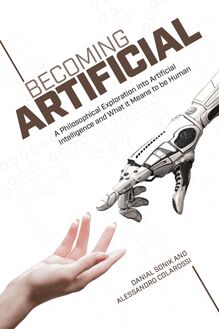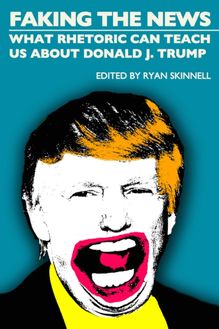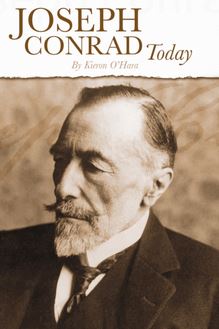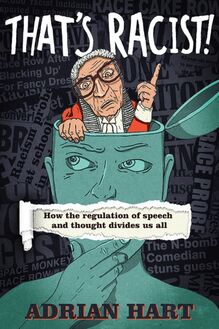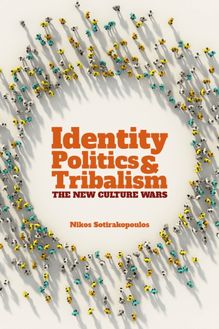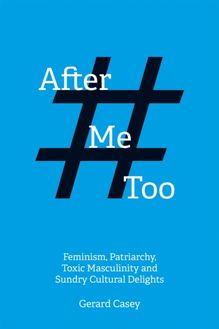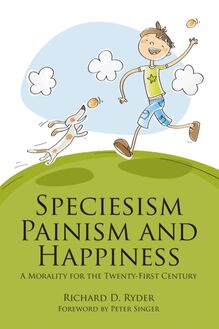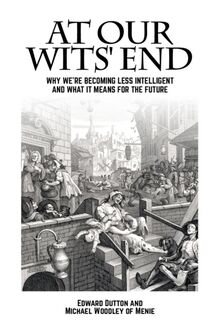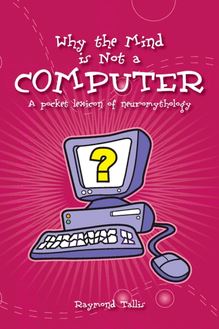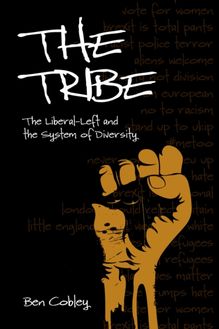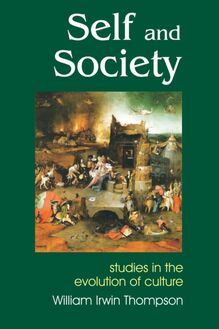Democracy - A Work in Progress , livre ebook
39
pages
English
Ebooks
2020
Vous pourrez modifier la taille du texte de cet ouvrage
Obtenez un accès à la bibliothèque pour le consulter en ligne En savoir plus
Découvre YouScribe en t'inscrivant gratuitement
Découvre YouScribe en t'inscrivant gratuitement
39
pages
English
Ebooks
2020
Vous pourrez modifier la taille du texte de cet ouvrage
Obtenez un accès à la bibliothèque pour le consulter en ligne En savoir plus
Publié par
Date de parution
11 février 2020
Nombre de lectures
0
EAN13
9781788360180
Langue
English
Publié par
Date de parution
11 février 2020
Nombre de lectures
0
EAN13
9781788360180
Langue
English
DEMOCRACY — A WORK IN PROGRESS
AN IRREVERENT EXERCISE IN POLITICAL THOUGHT
Ernest Lamers
SOCIETAS
essays in political
& cultural criticism
imprint-academic.com
Copyright © Ernest Lamers, 2019
The moral rights of the author have been asserted. No part of this publication may be reproduced in any form without permission, except for the quotation of brief passages in criticism and discussion.
2020 digital version converted and distributed by
Andrews UK Limited
www.andrewsuk.com
Published in the UK by
Imprint Academic Ltd., PO Box 200, Exeter EX5 5YX, UK
Jacket illustration: Philipp Foltz (1853) “Pericles Funeral Oration”, by courtesy of Stiftung Maximilianeum, München.
For if truth be at all within reach of human capacity, ’tis certain it must lie very deep and abstruse; and to hope we shall arrive at it without pains, must certainly be esteemed sufficiently vain and presumptuous.
—David Hume, A Treatise of Human Nature
Preface
In the eyes of the many, democracy has an aura of near sanctity. Government by the people, what could be of greater moral value than allowing people the freedom, the right to decide their own political fate.
Almost universally, democracy is seen as an, or even THE, ideal. It has become the standard of political legitimacy, based on a principle that is clear and simple. But the simplicity ends with that principle, as it has given rise to an uninterrupted stream of interpretations, definitions, political theories and philosophies—all pretending to catch its essence but with little agreement on what a political regime should entail to be labelled democratic.
At this point I cannot resist quoting that sharp observer of political life—I mean, of course, Sir Winston Churchill—who famously said, and I give you the complete quote: “Many forms of government have been tried before, and will be tried in this world of sin and woe. Nobody pretends democracy is perfect or all-wise. Indeed, it has been said that democracy is the worst form of government, except all those that have been tried from time to time.” [1]
What I find remarkable is that Sir Winston Churchill refrains from defining democracy as an ideal, let alone THE ideal. But there seems to be a slight disappointment between the lines, unconsciously perhaps: is this the best we could come up with after hundreds of years of wrestling with the issue of what the best form of government should be?
It wasn’t for a lack of trying though. Political theorists and philosophers have since time immemorial devoted great energy to developing systems of government to meet the highest standards. But this perennial debate had one particular feature that was—and still is—practically common to all political thought. Beginning with Plato and continuing through the centuries to modern times, theories have been overwhelmingly normative, i.e. on what-ought-to-be instead of what can realistically be done to achieve good governance. To coin and expression, I would call such theorizing as suffering from an “ought symdrome”.
Thinking about the res publica , and about democracy in particular, should be firmly grounded in the terra firma of (political) reality, or lack relevance. The deep-seated weak–ness of most theories or philosophies is that they ignore what Raymond Aron has called “ l’inévitable imperfection de la nature humaine et de ses institutions ”. The irrationality and imperfection of the human mind cannot simply be swept aside.
“Ought” thinking strikes me as comparable to the work of an architect who designs a house, a bridge or whatever without knowledge of the properties of the materials he intends to use. His design may be beautiful, but the structure may collapse at an early stage if he misjudges the strengths and weaknesses of the material.
And the main material here, in rebus politicis , is Man. Human reality can’t be moulded to suit a particular theory. “From the crooked timber of humanity nothing straight can be carved” (Kant).
A second, rather common, peculiarity of most political theorizing is what, in an ugly expression, I would call “illusional thinking”. It is not just the normative thinking that often leads man astray, but also the confidence, the illusion that ideal solutions can be found.
“The concept of the perfect society is one of the oldest and most deeply pervasive elements in Western thought”, says Isaiah Berlin. [2] In his introduction to his classic Four Essays on Liberty , he argues that it is mistaken that “this ancient and almost universal belief, on which so much traditional thought and action and philosophical doctrine rests, seems to me invalid, and at times to have led (and still to lead) to absurdities in theory and barbarous consequences in practice.” [3] History provide ample proof to Berlin’s thesis.
It is my intention to illustrate in what follows how man’s imperfection coupled with “illusional thinking” more often than not leads to less than optimal results.
The “State”, as an institution, a structure, might constitute an appropriate starting point for these reflections (Chapter I). The State is the skeleton on which a system of government—any system of government—is grafted. Without a state, no government. And no democracy, of course.
A next step (Chapter II) takes the argument to “Democracy” with a, perhaps biased, focus on its shortcomings, followed by a discourse (Chapter III) on the “Political Arena”, the place where the action is and where the political battles are fought.
Democracy, as a human institution, will never attain perfection. In the “Conclusion”, I venture to make a few suggestions on what could possibly mitigate some of the weaknesses.
1 Speech in the House of Commons, November 1917
2 Isaiah Berlin, Against the Current (1979), edited by Henry Hardy, London: Pimlico (1997), p. 120.
3 Oxford University Press (1969), 1988, pp. lv–lvi.
The State
- 1 -
“If the state did not exist, would it be necessary to invent it?” [1] A somewhat surprising question perhaps, raised by Harvard philosopher Robert Nozick who was not above throwing the occasional stone in a quiet pond. It is, in fact, the opening sentence of his 1974 classic Anarchy, State and Utopia . For good measure he added on the next page: “The fundamental question of political philosophy, one that precedes questions about how the state should be organized, is whether there should be a state at all.” [2]
A fundamental question indeed that has preoccupied philosophers since Plato. Thomas Hobbes, who preceded Nozick by some three hundred years, had a rather clear and unambiguous answer. Homo homini lupus —that was the crux. As he put it in his thundering prose: “Hereby it is manifest, that during the time men live without a common Power to keep them all in awe, they are in that condition which is called warre, and such warre is of every man against every man … In such conditions there is … no society; and which is worst of all, continual fear of danger and violent death. And the life of man, solitary, poore, nasty, brutish and short.” [3] A common Power to keep them all in awe—and protect them, i.e. a state.
A view of man not shared, at all, by Jean-Jacques Rousseau who opened his Du Contrat Social (1762) with a proclamation of man’s inborn innocence, corrupted only by society. [4] To be honest, I have to admit that I am not very fond of Rousseau. This has less to do with the fact that he was an egocentric and disagreeable fellow than with (my understanding of) his Contrat Social . [5] To my mind Rousseau got it wrong and Hobbes was much closer to the realities of an imperfect world. Where I part company with Hobbes, however, is that he, just as Jean-Jacques, has recourse to what is known as a social contract theory. I am walking on thin ice here but in my view it is unnecessary and erroneous to invoke any form of contract—not even hypothetical—between men [6] who one way or another have to live together. There has never been anything remotely resembling a “contract” in the sense of Hobbes, Rousseau, Locke, Kant, Rawls and countless others. [7]
The driving force that led man to develop bonds which ultimately resulted in the emergence of the “state” was the primordial quest for survival. Humans have, from the earliest times, formed groups, clans and tribes in order to survive. Anthropology, history and perhaps biology can teach us more about the origins of the state than the theoretical constructs of political thinkers. Individuals or tiny groups of individuals such as families had few means to survive in the “poor, nasty, brutish” world unless they were able to defend themselves. And obviously, the only way to get an adequate defence was to combine forces, to conclude alliances with other groups that had similar preoccupations. This was a natural process, nobody invented anything; at least at the beginning structures and institutions evolved gradually as needed. Groups grew larger by necessity as other groups grew larger as well, and many were often perceived as threats by others. Defensive systems began to develop as the new larger entities coveted the assets of weaker ones. Warre it was, and for ages it has been the way the world turns.
An author who, I think, well understood this process is Francis Fukuyama. I am not referring to his justly famous The End of History and the Last Man , but to his later book The Origins of Political Order . [8]
In this book he deals convincingly with the emergence of political institutions—and the state. Agreeing to a large extent with Fukuyama, and since he summarizes the position rather clearly, I can do no better than quoting him at length.
Everything that modern biology

